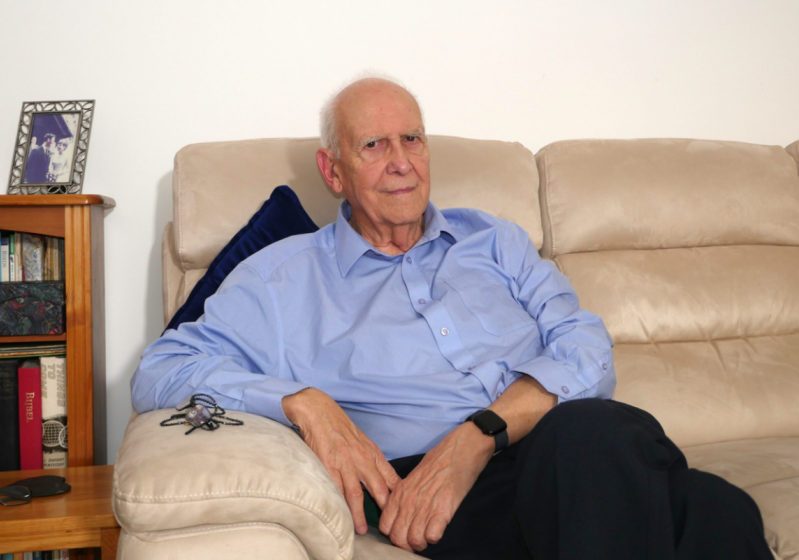
U.K. lawmakers on June 20 gave final approval to the Terminally Ill (Adults) Bill, which would legalize assisted dying in England and Wales under specific conditions. While the bill passed after several amendments, the Christian Medical Fellowship (CMF) issued a statement lamenting the decision and calling Christians to remain anchored in the hope found in Jesus Christ.
The legislation, introduced by Labour MP Kim Leadbeater and first approved in December 2024, allows terminally ill adults—with a life expectancy of six months or less—to request and receive assistance in ending their lives, subject to a series of safeguards.
The Bill sets out that a terminally ill person can make a decision to end their own life if they have the “capacity,” aged 18-plus, reside in England or Wales for at least 12 months, and are registered with a local doctor. Approval is required from two doctors and a decision panel, which must include a senior attorney, psychiatrist and a social worker.
The MPs’ vote at the third reading in the House of Commons today saw 314 for the assisted dying bill; 291 voted against and there were 39 abstentions. It means the bill passed with a majority of only 23 MPs. Reports say it is likely to become law although it will be sent to the House of Lords (Upper House) for approval.
Prime Minister Keir Starmer voted in favor but Deputy Prime Minister Angela Rayner voted against the legislation, showing the deep divide among MPs with the third reading showing less support by policymakers than previous readings.
A spokesman for Christian Medical Fellowship (CMF) issued a press statement after the vote, saying, “this week, our nation has walked across the Rubicon” lamenting not only the legalizing of assisted dying by MPs but the decriminalisation of abortion, also reported by Christian Daily International.
“Each of these votes serves to unravel the cords that bind society to life, to truth, and to love,” said the CMF spokesman. “All people—people made in the image of God—have lost their right to the State’s protection of their life from the womb to their last natural breath.
“For our first nine months in utero, and in our last months and years of life, we will no longer share the same protection from intentional killing that, for generations, all of us have lived enjoying and expecting.”
However, the CMF also reminded Christian opponents of the bill about the living hope in Jesus Christ whilst reflecting “on this dark day for our nation and consider what comes next.”
“We do not despair,” added the CMD spokesman. “While we must consider how we respond as a church, as Christian families, and as Christian health professionals, we know that God, who is love, calls us to look to Him and not to our circumstances. So, let us pray—with lament but in hope. Let us love—with presence and perseverance. Let us speak—with clarity and compassion. Because God’s love never fails.”
The bill has been previously reviewed by 23 MPs in a cross-party committee with a number of amendments made at committee stage and a second reading in the House of Commons last Friday.
The decision made for a person to request assisted dying can only be allowed, according to the Bill, if he or she “has a clear, settled and informed wish to end their own life, and has made the decision that they wish to end their own life voluntarily and has not been coerced or pressured by any other person into making it.”
Andrea Williams, Chief Executive of legal rights group Christian Concern, vowed to redouble efforts to stop assisted dying.
“We must now pray that the House of Lords miraculously amends this bill to the point that it is unrecognisable and allow MPs once more to stop it at the very last moment,” said Williams, calling upon political leaders to “rise up” and “refuse to implement a state suicide service.”
Older people had been excluded from the assisted dying debate, according to the British Geriatrics Society (BGS), the professional body of specialists in the healthcare of older people in the U.K.
The BGS issued a damning press statement against the decision of the House of Commons with a warning that most deaths in the U.K. happen to older people. The professional body also pointed out that most legally assisted deaths in other countries happened to people aged over 65.
Therefore the complex needs of older people were avoided in the bill, according to the BGS, which stated that older people often have multiple health conditions, “including frailty,” needing the expertise of healthcare professionals specializing in older people.
“Without significant amendments, this Bill does not adequately support the complex needs of older people dying with multiple conditions,” said Professor Jugdeep Dhesi, President of the BGS.
“The Bill fails to emphasise the need for holistic assessment, which in certain cases may identify treatable needs. Moving forwards, we would welcome the opportunity to work with the House of Lords to ensure that the Bill protects older people from feeling coerced into an assisted death and supports the workforce to deliver quality palliative care for all."
The British Geriatrics Society (BGS) outlined several key concerns about the Bill. First, it warned that the proposed legislation contains inadequate safeguards to protect older people from potential harm. The BGS also noted that the Bill fails to sufficiently acknowledge the vital role of healthcare professionals beyond doctors, such as geriatric specialists, nurses, and palliative care teams. Additionally, the legislation does not recognize the unequal and often inadequate provision of palliative and end-of-life care across the U.K., a gap the BGS views as critical. The organization emphasized that assisted dying should be treated as a separate service from palliative and end-of-life care. Finally, it cautioned that predicting when an older person may die is inherently difficult, especially given the complexity of health conditions common in later life.






